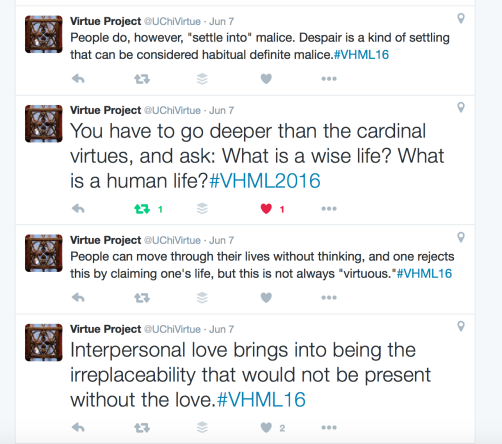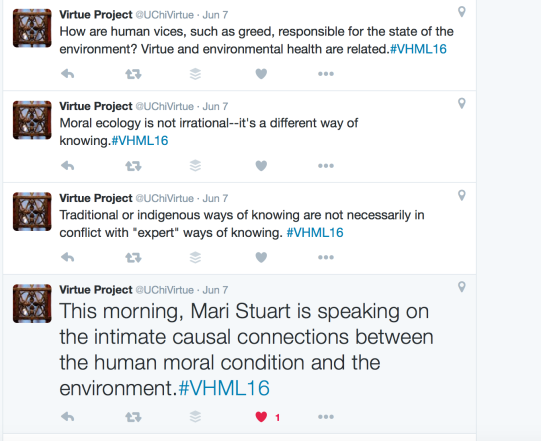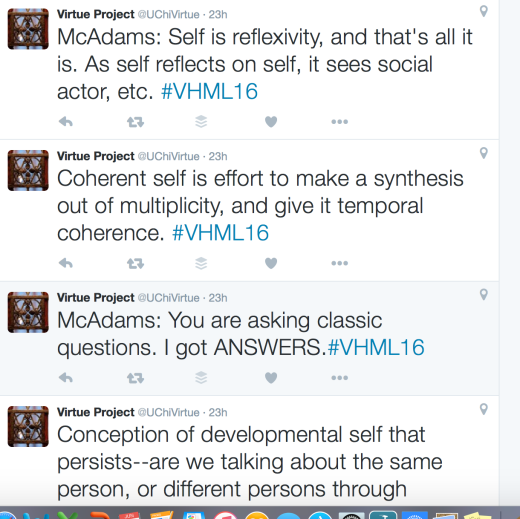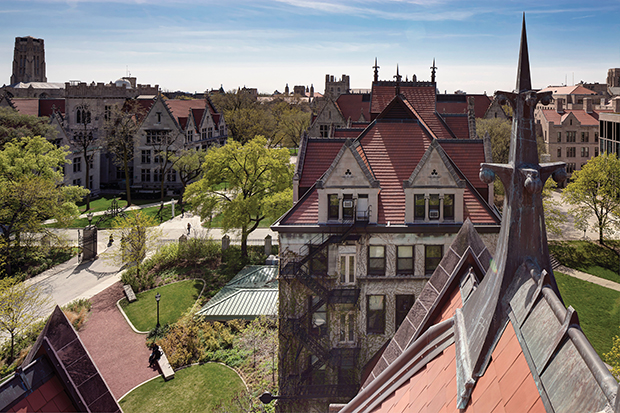We were thrilled to have our 2016 Working Group Chicago Meeting at the University of Chicago’s Neubuaer Collegium, and extend the conversation during meals at restaurants all over the South Side of Chicago.
For more photos, visit our Flickr album.
Our 2nd working group meeting of scholars met June 6-10, 2016 at the University of Chicago in the beautiful Neubauer Collegium for Culture and Society. Although the sessions were closed, you can read our scholars’ abstracts for their June Meeting Topics here and see more photos up in our Flickr album for the week.
Our scholars are discussing and tuning their work in progress this week at our June working group meeting at the University of Chicago. Follow our live-tweeting @UChVirtue #VHML16. A few more highlights below!



Our scholars are discussing and tuning their work in progress this week at our June working group meeting at the University of Chicago. Follow our live-tweeting @UChVirtue #VHML16. We’re sharing a few highlights below!




Follow our live twitter feed @UChiVirtue with #VHML16

This coming week (June 6-10, 2016, at the Neubauer Collegium at the University of Chicago) is the second of four meetings for our scholars (the first was December 2015 at the University of South Carolina). These meetings are immersive experiences for these scholars, who are philosophers, theologians, and psychologists; the meetings are aimed at generating systematic and integrated knowledge, including ultimately a new construct for empirical research on self-transcendence, new instruments of assessment, and new data.
Here are summaries of the questions and research our scholars will be discussing with each other in the coming week.
Matthias Haase: Can virtue be cultivated like a habit?
Tahera Qutbudden: Can one enjoy a happy and pleasurable life in this world while also preparing for the next?
Jennifer A. Frey: Is selfishness a particular kind of vice, or the nature of vice?
David Schatz: Is ignorance always a vice, or can it also be a virtue?
Heather C. Lench: Can boredom lead us to virtue?
David Carr: Does spirituality have a material dimension, and if so, can it be developed and educated?
Mari Stuart: Can the indigenous knowledge reflected in a moral ecology worldview teach things that climate science cannot?
Jean Porter: Can malice, like virtue, also give meaning to life?
Erik Angner: Is social well-being the same thing as happiness?
Paul Wong: Is it possible to measure Self-Transcendence?
Katharine Kinzler: Can infant food preferences teach us about the social world?
Mark Berman: Do ugly surroundings encourage criminal behavior?
Angela Knobel: Can the notion of virtue as a gift from God have broad appeal?
Father Thomas Joseph White: Can Aquinas help us understand Nietzsche’s ideas about truth and moral freedom?
Michael Gorman: Is a meaningful life also necessarily a good life?
Nancy Snow: Is magnificence—expenditure for the public good—virtuous, or vicious? Can it be both?
Tal Brewer: Are human beings irreplaceable, and due special forms of regard and good treatment?
Dan McAdams: What is the difference between habit and character? Do we narrate these things about ourselves in different ways?
Reinhard Hütter: How do we overcome the lure of self-sovereignty that surrounds us and attain true self-transcendence?
Father Kevin Flannery: What is the relationship between intention, choice, and virtue?